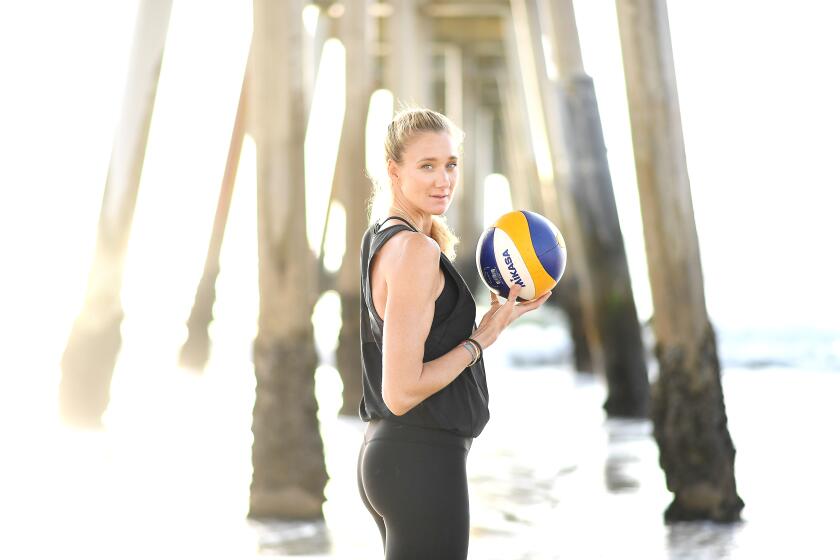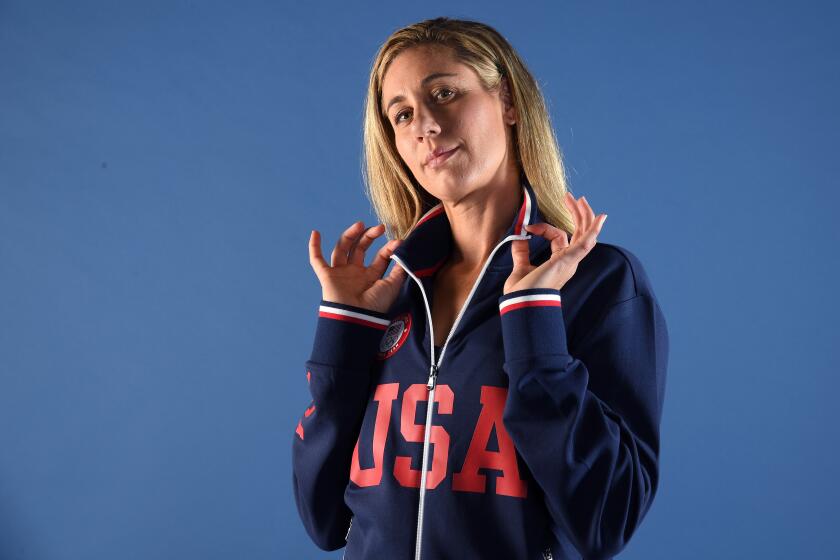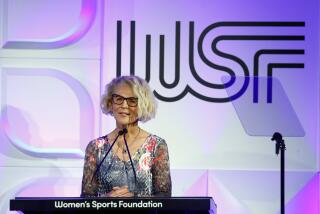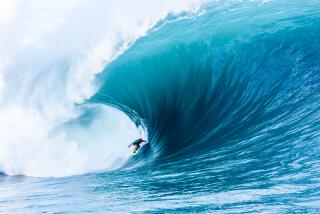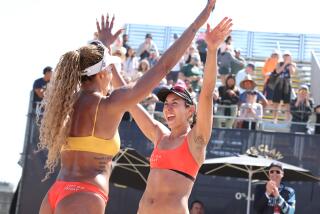The Check-In: Kerri Walsh Jennings shifts her routine to new Olympic timetable
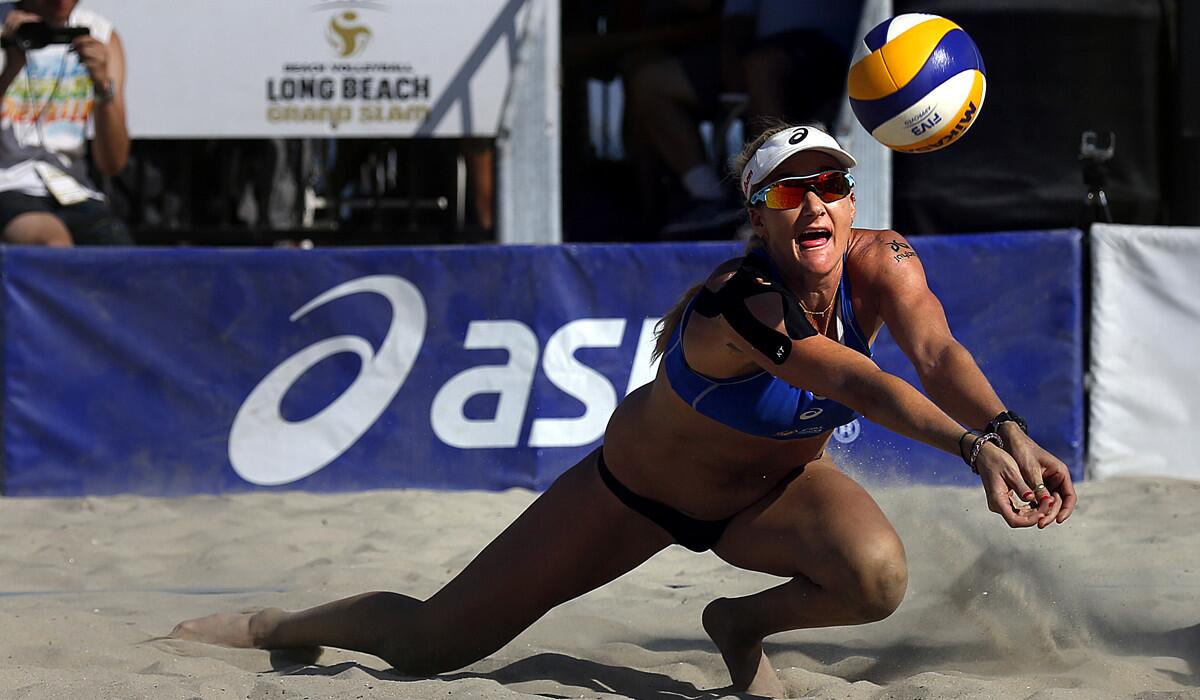
Kerri Walsh Jennings awakes between 4:30 and 5:30 every morning. The four-time Olympic medalist meditates. She journals. She works out at 6 a.m.
At 41 years old, with one of beach volleyball’s most impressive resumes, Walsh Jennings still chooses this, and with the Tokyo Games postponed until 2021, she has no qualms about doing it for another year as she turns the coronavirus outbreak that threatened to prematurely end her Olympic career into a breath of fresh air.
“It’s pretty cool hitting such, what could be perceived [as] a major road block, and just fortifying my love for the game,” Walsh Jennings said in a recent phone interview.
Having already determined this will be her final Olympic Games, Walsh Jennings said this qualifying cycle felt different. She and playing partner Brooke Sweat were filled with anxiety and stress. They wanted it to be over. Of the 19 tournaments they’ve played together since 2019, they won only two and finished on the podium five other times.
Although Walsh Jennings said the pair did not play to its potential, Walsh Jennings and Sweat were in position to be one of the 24 teams in the Olympics. When the qualifying cycle was suspended in March, they were the second-highest ranked American team after April Ross and Alix Klineman.
Kerri Walsh Jennings has long been the face of the beach volleyball world.
Each country is allowed two pairs per gender in the Olympic beach volleyball tournament, so while the next-closest U.S. team of Sarah Sponcil and Kelly Claes has the eighth-most qualifying points overall, they are out of position for the Games as the third-best U.S. pair. Sponcil and Claes trail Walsh Jennings and Sweat by 320 points. With top teams averaging more than 500 points per tournament, the qualifying race is still tight.
“You can want something too much and suffocate it and I think Brooke and I were there,” Walsh Jennings said. “So now it’s just this is such a perception switch. There is just so much stuff bigger than this, even though this is huge to us. It’s our careers, it’s our lives, it’s our passion … however, we will now see it with more gratitude, and I believe less stress, which will allow us to play better.”
After the Tokyo Games were rescheduled — a tough-to-swallow consequence of the pandemic that, from Walsh Jennings’ perspective, is still worlds better than canceling — Sweat returned to Florida to practice. The defensive specialist has beach volleyball courts on her property. Walsh Jennings, who has been unable to play on the beach because of coronavirus restrictions in L.A. County, is envious.
At this time of the summer, Walsh Jennings would normally be in agile game shape. Now without tournaments, the former Stanford indoor volleyball star is focused on strength training, weightlifting three times a week along with her regular Pilates and mobility workouts. That’s her postseason mode.
“That honestly was the mental shift that we needed because it took the pressure off,” Walsh Jennings said. “If you’re [in the] preseason, you’re a caged lion ready to go and you can’t sustain that forever.”
Sweat works with the coaching staff on film study. Walsh Jennings, a businesswoman and mother of three, can’t always make time for the additional time-intensive task as she balances her own training with her company p1440 and her family. Pandemic homeschooling for her children, ages 11, 10 and 7, has been “really gnarly,” she said with a chuckle.
Beach volleyball star April Ross discusses the challenges of waiting an extra year for a shot at her first Olympic gold amid the coronavirus outbreak.
The Jennings family is relieved the virtual school year is over, but Walsh Jennings is still doling out pandemic lessons since p1440, an online beach volleyball platform, launched virtual training camps aimed at helping young volleyball players through trying times.
Virtual training sessions were always a possibility for p1440, which Walsh Jennings co-founded in 2017 with her husband and fellow former beach volleyball pro Casey Jennings. But the pandemic “put rocket boosters” behind the idea when high school coaches and parents called about how the coronavirus shutdown had upset the routines for so many of their players.
The camps include volleyball skills, strength training, meditation and mindfulness sessions. Walsh Jennings has engaged with 10-year-olds, high school students and 50-year-old cancer survivors through the program, she said, and hopes it gives them a space to feel empowered. The experience gives the three-time Olympic gold medalist additional motivation to carry out her own message.
“For me to take four hours a week to talk to these athletes and these parents and coaches, it really makes me look in the mirror like, ‘Kerri, are you practicing what you preach?’” Walsh Jennings said. “And where I’m not, I get in a kick in the tush.”
That’s why Walsh Jennings diligently gets in bed by 10 o’clock every night to rest for an early morning the next day. She makes sure technology is off in the house by 9 p.m. She has a schedule to keep, even if one timeline now extends to 2021.
More to Read
Go beyond the scoreboard
Get the latest on L.A.'s teams in the daily Sports Report newsletter.
You may occasionally receive promotional content from the Los Angeles Times.

